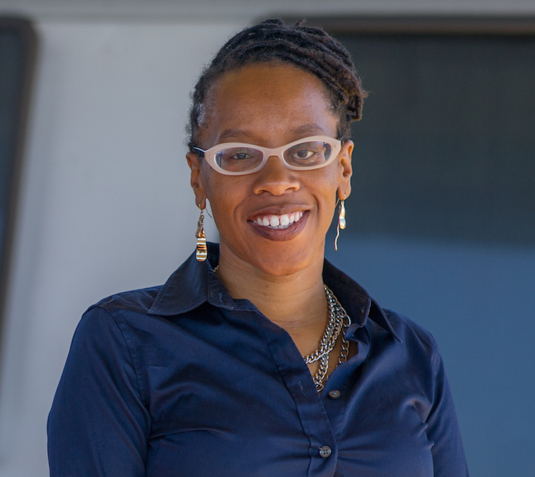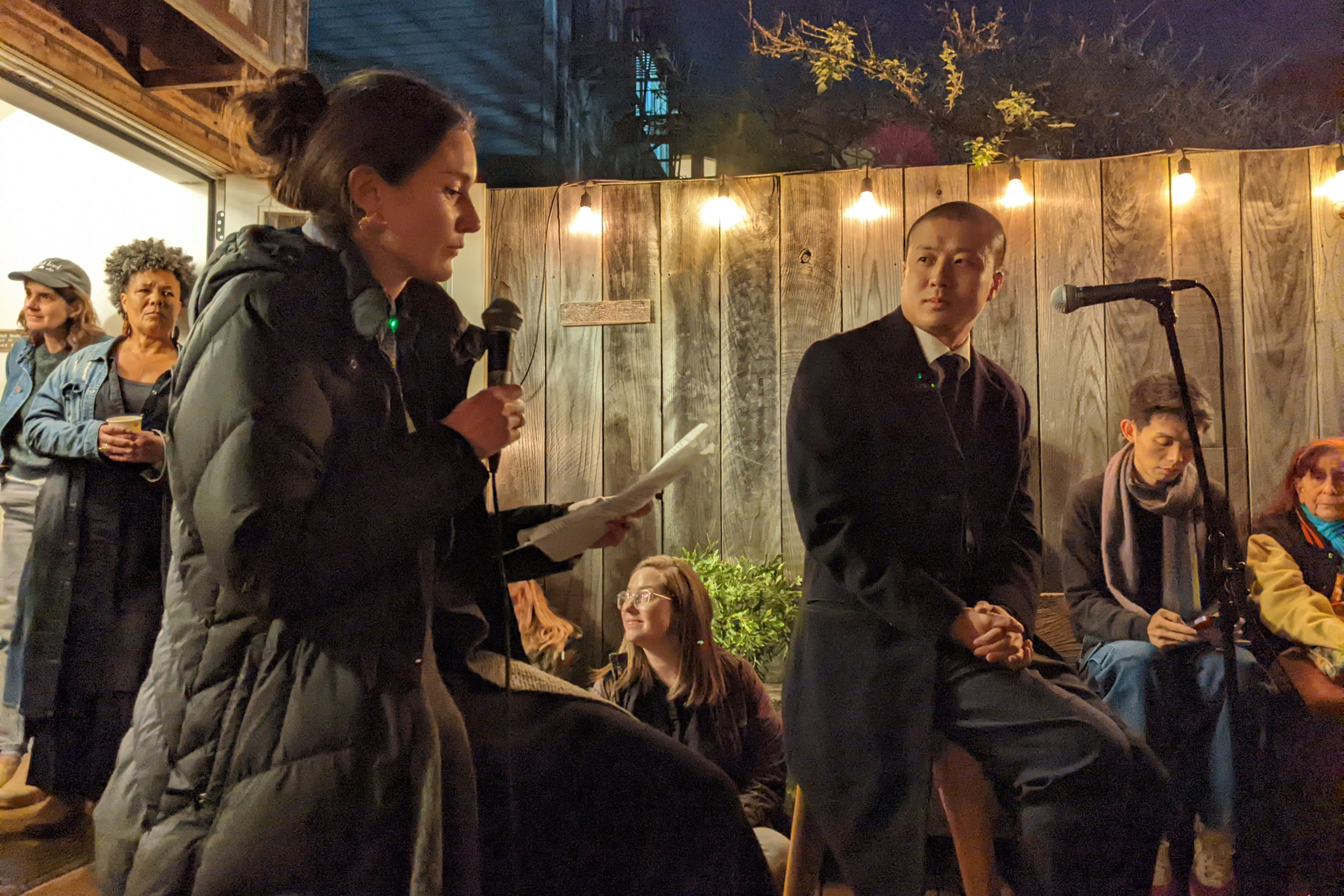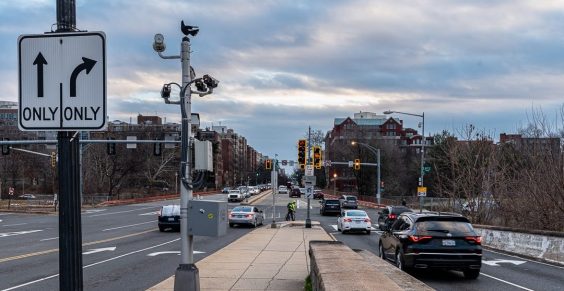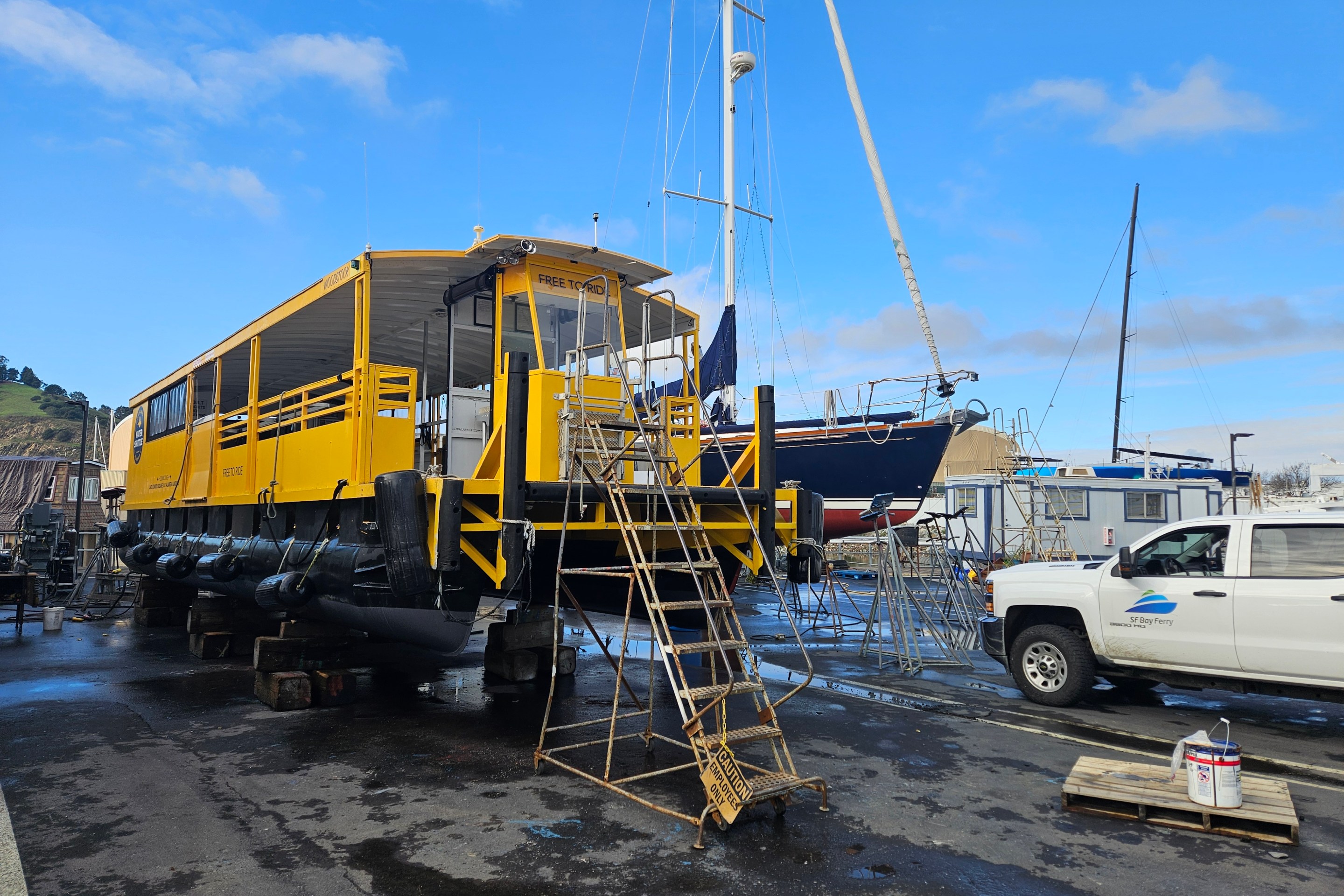Lateefah Simon was one of three new BART directors elected earlier this month. She will take over District 7 from outgoing director Zakhary Mallett. District 7 is unique in that it encompasses portions of San Francisco, Alameda, and Contra Costa. That means balancing the requirements of the outlying suburban areas with those of West Oakland and dense parts of San Francisco.
And it also means balancing the needs of some of the wealthiest and most depressed parts of the Bay Area. Simon is President of the Akonadi Foundation, which has the mission of "eliminating the structural racism at the heart of inequity." Here's some more background from her campaign website:
Lateefah has received awards for her work, including the California Assembly’s “Woman of the Year,” inclusion in O Magazine’s first ever “Power List,” the ROOT 100, the Chronicle of Philanthropy’s “40 Under 40,” Ford Foundation’s Leadership for a Changing World, the Remarkable Woman Award from Lifetime Television, the Levi Strauss Pioneer Activist Fellowship, and the New Frontier Award from the John F. Kennedy Presidential Library.
Lateefah has served on numerous boards of directors and advisory committees. Her affiliations include the Oakland Public Safety Steering Committee, San Francisco Foundation’s Kroshland Committee, Bay Area Girls’ Coalition, California Executive Alliance for Boys and Men of Color, ACLU of Northern California, Women’s Foundation of California, Essie Justice Project, At the Crossroads, and MISSEY (anti-trafficking organization). She is an alumna of Emerge California and the Values Based Leadership program.
Simon comes in with the awesome responsibility of helping to rebuild BART's core infrastructure, made possible by the passage of Measure RR, the $3.5 billion BART bond. What direction will Simon take BART? And what will be her approach to helping run the Bay Area's vital transportation network?
Streetsblog talked with Simon and tried to find out.
**
Streetsblog: Let’s start with the obvious question---why do you want this job?
Lateefah Simon: It's a very complicated answer. As somebody who has been working on intersectional issues for so long...we've been waiting for one of us to step up to join the conversation on creating transportation infrastructure. I kept waiting for someone to represent me on the BART board. Not just black people, but disabled folks. I'm legally blind. I can't drive. People who are struggling to afford BART and people who are living in transit deserts have a very difficult time. I have a great job but I'm dependent on public transportation. That's a struggle. I know lots of people in the Bay Area are struggling as well. I've served on a lot of boards and it was just time. Nobody asked me to run.
SB: Donald Trump. The Republicans control both houses. How does that impact the needs of BART?
LS: National Public Radio is talking about Trump promising trillions for infrastructure. I don't believe anything he says, but in the same way I'm talking to BART board members who didn't support me--I'm asking to have lunch with them and work together and build together--I want to do that with any administration, not just ones that are friendly to progressive folks. . . . Trump may be the least intelligent president we've had but he won't be the most regressive, not at all. I think poor people and people of color have been living under leaders that didn't support disabled people or their plights. White people are freaked out: so join the club. This presidency, while a heartbreak . . . I think people [of color and the disabled] have been disappointed for their whole lives. I just work harder. I get more strategic. I want to get money from DC. I've procured money all my life. I think the BART board needs that--the last guy in this office was begging the BART board to get him [to] places on their dime, but didn't bring any new resources. The voters need to see me working across lines, across Sacramento and DC to West Oakland and Richmond and beyond.
SB: What about the BART bond passing? How will you approach spending it?
LS: I know the language of the bond. I've read it like the bible. I want to spend it on exactly what the law said. The system is so damn old and it's breaking right in front of us. What I want this board to do, and our general manager to do, is work really hard to gain the public's trust back by making improvements people see pretty rapidly! Because people are paying for this. It touches people's purses. I want to make sure we are strong fiduciaries, so when things get hard on the other side. . . that we spend this bond so the riders have a better experience. That's what it's about. I want to do right by the people who voted "yes" on the bond because BART is not safe enough or reliable enough . . . BART is falling apart. You can't extend until you address its core flaws.
SB: With your election, you join [Nick] Josefowitz and incoming director Bevan [Dufty] and other directors who favor dense station areas and transit connections and want less emphasis on a suburban park-and-ride model for BART. In other words, I think it's safe to say you side with the more "urbanist" block--
LS: I have not spent enough time with enough members on the BART board--I've characterized [some of] them as suburban. They want more big parking lots and they are thinking of massive extensions when we don't have money. But the race is over. I need to take a breath and stop the rhetoric--which is purely my values, but I need to actually meet these people and spend a lot of time with them. We have a lot of work to do to . . . gain the public trust. Got off the phone with Director Joel Keller. . . he didn't support me. But I'm going to have a beer with him next week. We have to build alliances and get past labels.
SB: Shortly before the election, the bond was almost beaten by this story about the BART janitor who made close to $300 grand.
LS: It's bullsh*t. Mr. Zhang [the janitor] works fourteen hours a day, picks up everyone's shift. . . what they didn't put out there is there are BART police officers who made more than that.
SB: But 300,000?
LS: BART has chosen to hire fewer people, so there's always overtime available. When you hire more people, you pay other fixed costs . . . you pay insurance for families. The logic has been that if you don't hire another body, there will be money to have them work overtime [for less overall cost]. So there's this regressionist idea of shaming the individuals who are taking advantage of that.
SB: So the blame lies not with the janitor, but with the manager who didn't stop one individual from glomming all the overtime?
LS: Of course. These are management issues . . . we have to change some of those. We have to figure out how we staff better.
SB: Okay. Let's think big picture, long term for a bit. What do you think of the prospects of a second Transbay tube?
LS: The Bay Area is bursting at the seams. The question is how much will it cost, and when and where is it going to go. We need a new wave of leadership that cares so much about transportation. Then we have to work really close together and storm and attack these issues and find the funds. We are a wealthy area. Why should it take thirty years [to build something]?
SB: Many other cities already have more comprehensive transit networks than the Bay Area. What other cities, globally and nationally, do you think we can learn from?
LS: Hong Kong is really clean. That's one. New York is old as hell, but I know I can get from Wall Street to the Bronx for the same fare--there's fare equity in New York. Portland is doing an amazing job providing support for low-income people who want to get out of their cars, by subsidizing them to use public transportation. Everywhere I go I take public transportation. I love Seattle's system . . . I took it everywhere and it was cheap and it was beautiful and clean. I want to learn and see other transit models.
SB: Go a bit north from Seattle, to Vancouver, British Columbia, and the trains are driverless. Do you see a future for that here?
LS: I know it's the future. But in New Jersey, when that train crashed, everyone was saying there should have been more staff. When BART trains go under the Bay with hundreds of millions of pounds of water pressure above, I want to know there's staff on those trains. We live on earthquake faults. We need trained people who understand disaster preparedness. But I'd love to be proved wrong. The beautiful thing about serving is you have to study harder than you ever did before. I'm going to shock myself about what I'm able to do, if I keep studying and letting me hear and understand what's possible. I want to learn. I want to soak it up. I want to be a good steward.
SB: Anything else?
LS: I just want to be really good at this position. I want to be really good.
This interview was edited.





